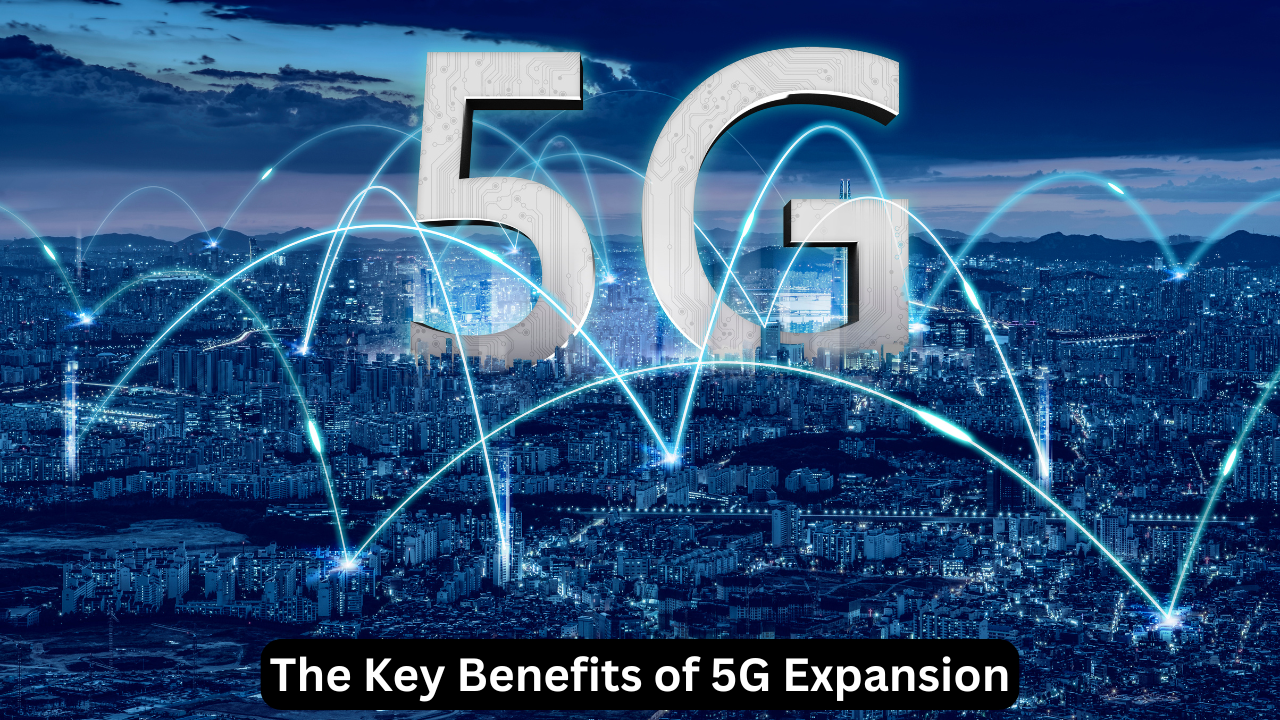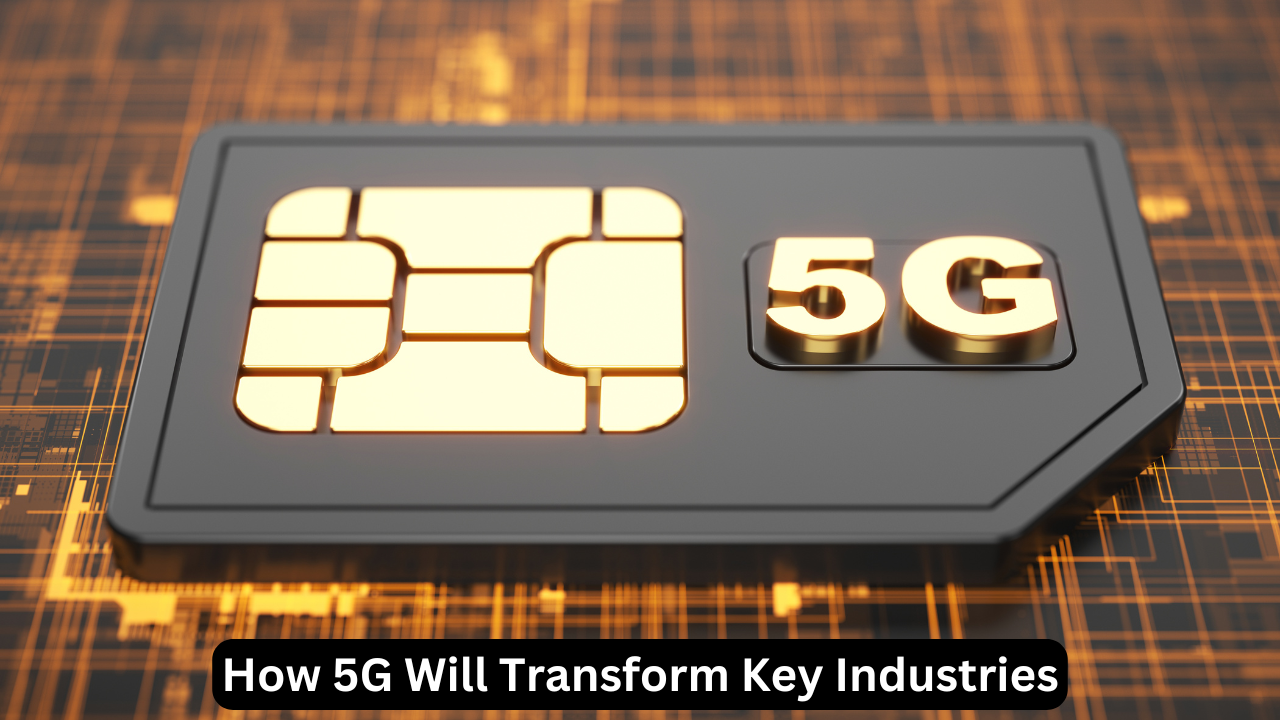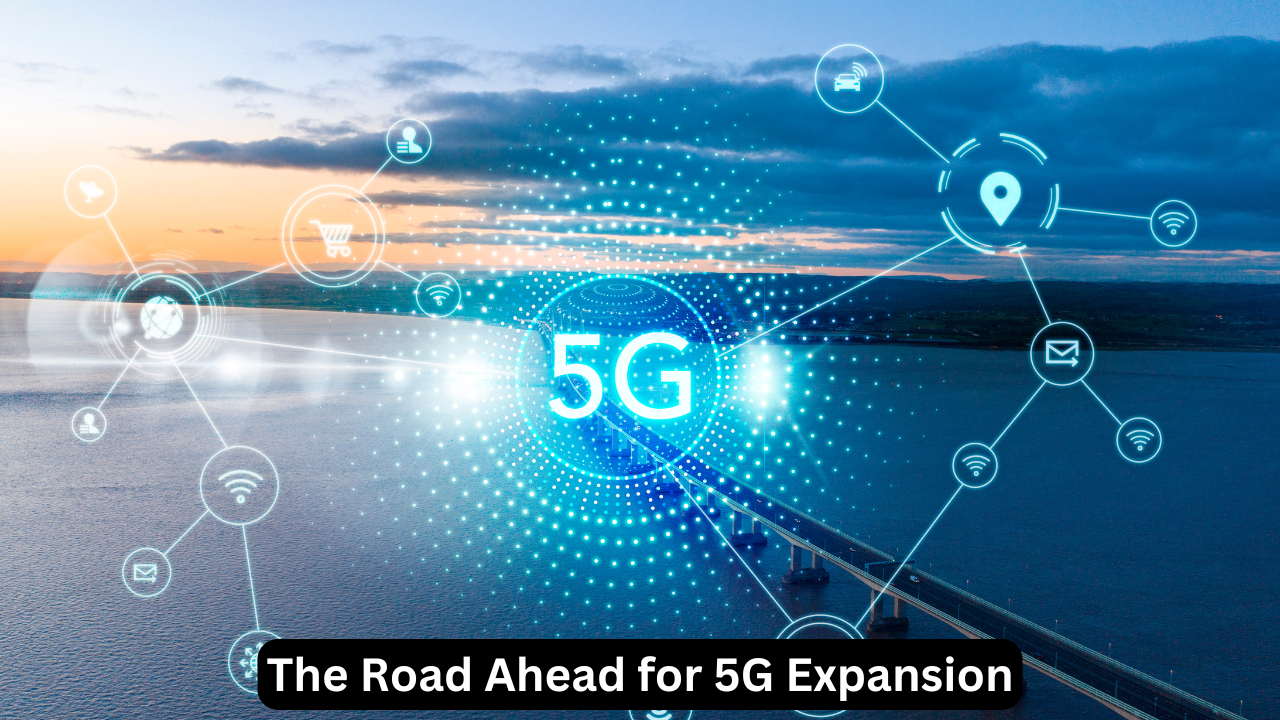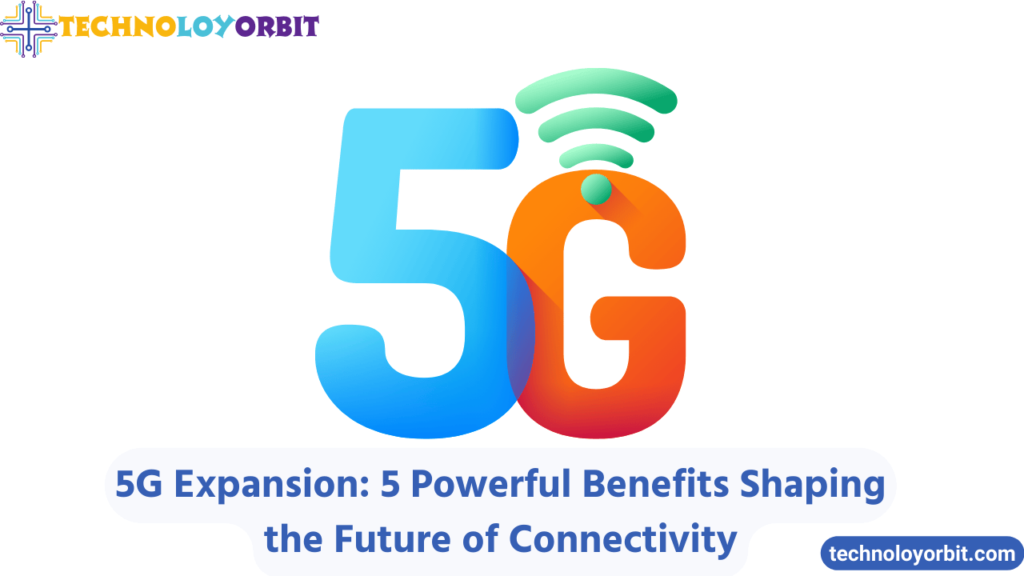5G Expansion offers faster speeds, lower latency, and greater connectivity, providing industries with improved performance, efficiency, and the ability to support millions of devices simultaneously.
The 5G expansion is rapidly becoming one of the most discussed technological revolutions of our time. As we continue to live in an increasingly interconnected world, the introduction and expansion of 5G networks promise to reshape how we communicate, work, and live. With the advent of 5G, mobile broadband speeds will be faster, connections more reliable, and latency significantly reduced, paving the way for a new era of innovation. This article will dive into what 5G expansion means, its benefits, challenges, and its potential to transform industries and societies worldwide.
What Is 5G and Why Is It Important?
Before delving into the details of the 5G expansion, it is crucial to understand what 5G actually is. 5G stands for the fifth generation of mobile network technology, which is designed to provide faster internet speeds, lower latency, and more reliable connections compared to previous generations like 4G. This technological leap enables high-speed internet access that will transform everything from personal mobile devices to entire industries such as healthcare, transportation, and manufacturing.
The promise of 5G expansion lies in its ability to support a vast number of devices simultaneously, allowing for real-time, high-bandwidth communication. This can be particularly advantageous in smart cities, IoT (Internet of Things) devices, and autonomous vehicles, where low latency and high speed are essential for the systems to function correctly.
The Key Benefits of 5G Expansion

As 5G networks expand globally, they bring numerous benefits, not just to consumers but also to businesses and governments. The following are some of the most important advantages of the 5G expansion:
Faster Speeds and Enhanced Connectivity
The most noticeable benefit of 5G expansion is the unprecedented speed it offers. 5G is expected to provide download speeds that are up to 100 times faster than 4G LTE. This means that users can download high-definition videos, large files, and stream content almost instantly. The enhanced speed will also support real-time gaming, live streaming, and other high-data applications that were once limited by slower 4G speeds.
Ultra-Low Latency for Real-Time Communication
Latency refers to the delay between sending and receiving data. 5G expansion promises to reduce latency to as low as 1 millisecond, which is nearly instant compared to the 50-100 milliseconds in 4G networks. This ultra-low latency opens up new possibilities for remote surgeries, real-time virtual and augmented reality experiences, and autonomous vehicle communication.
Greater Network Capacity
As more devices get connected, network congestion becomes a challenge. However, the 5G expansion offers significantly more bandwidth, which can support a greater number of devices. This is critical for IoT ecosystems, where millions of connected devices need to communicate simultaneously without compromising performance.
Enhanced Network Reliability
5G is designed to be more resilient to interruptions and fluctuations in signal quality. This means more reliable connections, which are essential in sectors such as healthcare, emergency services, and public safety, where downtime could result in severe consequences.
Empowering Industries and Innovations
With 5G expansion, businesses can adopt new models of operation that were previously unimaginable. From smart factories to autonomous transportation networks, 5G technology offers a foundation for Industry 4.0, where machines communicate seamlessly to optimize processes and improve efficiency.
| Benefit | Description |
|---|---|
| Faster Speeds | 100 times faster download speeds than 4G, enabling better user experiences. |
| Low Latency | Reduced latency to 1 ms for real-time applications. |
| High Capacity | Improved capacity to handle millions of connected devices at once. |
| Enhanced Reliability | Increased reliability in critical applications, reducing downtime. |
Comparing the Performance of 5G vs 4G
The 5G expansion brings a significant leap over 4G LTE, and understanding the key differences between the two technologies is crucial for appreciating the scope of this transformation.
| Feature | 5G | 4G LTE |
|---|---|---|
| Download Speed | Up to 20 Gbps | Up to 1 Gbps |
| Latency | 1 millisecond | 50-100 milliseconds |
| Device Connectivity | Over 1 million devices per km² | 100,000 devices per km² |
| Bandwidth | 100 MHz – 1 GHz | Up to 100 MHz |
| Applications | Autonomous vehicles, VR, AR, IoT | Video streaming, online gaming, web browsing |
| Network Reliability | Highly reliable, minimal downtime | Can experience congestion during peak hours |
| Energy Efficiency | More energy-efficient per device | Less energy-efficient than 5G |
How 5G Will Transform Key Industries

The 5G expansion will affect a wide range of industries, and its impact will be seen in various aspects of daily life. Here are some key sectors that will benefit the most from 5G:
Healthcare and Telemedicine
5G’s ultra-low latency and high speeds will enable breakthroughs in telemedicine, allowing for high-definition remote consultations, remote surgeries, and improved patient monitoring. Healthcare professionals will be able to access patient data in real-time, improving decision-making and patient care. 5G-powered medical devices will also become more reliable, making healthcare more efficient and accessible, especially in rural areas.
Transportation and Autonomous Vehicles
Autonomous vehicles rely on instant communication between vehicles and infrastructure to avoid accidents and ensure smooth operation. The 5G expansion will provide the necessary speed and low latency for real-time vehicle-to-vehicle communication. This technology will not only enhance the safety of autonomous driving systems but will also contribute to the development of smart cities with smart traffic systems.
Manufacturing and Industry 4.0
The 5G expansion will usher in the next phase of industrial automation, known as Industry 4.0. By connecting machines, robots, and systems at lightning speed, manufacturers can monitor and control processes in real-time. This allows for better efficiency, fewer errors, and lower operational costs. The smart factory concept, powered by 5G, will lead to significant advancements in production capabilities.
Entertainment and Media
5G will revolutionize how we consume media and entertainment. It will enable seamless live streaming of high-definition and 4K content, create immersive AR/VR experiences, and reduce buffering times. The technology will also foster innovations in gaming, allowing for cloud-based gaming platforms and faster download speeds.
The Challenges of 5G Expansion
Despite the many benefits of 5G expansion, there are several challenges that need to be addressed:
Infrastructure Development
Building the infrastructure necessary for 5G coverage requires a significant investment in new equipment and installations, such as small cell towers and fiber-optic cables. Many countries are still grappling with the high costs of implementing the infrastructure needed to support 5G, especially in rural or remote areas.
Security and Privacy Concerns
As the 5G expansion brings more devices and data online, the risk of cyberattacks and data breaches also increases. Securing the 5G network and ensuring that personal data remains protected is paramount. Companies and governments must implement robust security measures to safeguard against potential threats.
Regulatory and Policy Issues
The rollout of 5G is not just a technological issue but also a policy challenge. Governments must establish clear regulations regarding spectrum allocation, infrastructure installation, and international coordination to ensure that 5G expansion proceeds smoothly. Moreover, policymakers must also address concerns regarding health effects and electromagnetic radiation.
The Road Ahead for 5G Expansion

As 5G networks continue to expand worldwide, the adoption of this technology will accelerate across various regions and industries. Countries that lead in 5G deployment will enjoy significant economic advantages, such as increased productivity, innovation, and job creation.
The global 5G rollout is expected to reach full scale by 2030, transforming the landscape of mobile networks and digital services. Businesses, industries, and individuals will have to adapt to this rapidly changing technological environment by investing in 5G-capable devices and innovating their services and products to fully leverage the benefits of this next-generation connectivity.
FAQs About 5G Expansion
1. What is 5G, and how does it differ from 4G?
5G is the fifth generation of mobile network technology, offering significantly faster speeds, lower latency, and increased connectivity compared to 4G. It allows for a higher density of devices to be connected at once and supports more data-intensive applications like autonomous vehicles and virtual reality.
2. What are the primary benefits of 5G?
The primary benefits of 5G expansion include faster internet speeds, ultra-low latency, higher network capacity, and improved reliability. These advantages will enhance industries such as healthcare, transportation, and manufacturing.
3. How will 5G impact businesses?
5G will provide businesses with faster and more reliable networks, enabling real-time communication, automation, and cloud computing. Industries like manufacturing and healthcare will see the greatest benefits from the increased connectivity and speed that 5G offers.
4. What challenges does the 5G rollout face?
Challenges to 5G expansion include high infrastructure costs, regulatory hurdles, security concerns, and the need for international coordination on spectrum allocation.
5. Will 5G affect my internet speed?
Yes, 5G will significantly increase internet speeds, enabling faster download and upload times. It will provide speeds up to 100 times faster than 4G LTE.
6. When will 5G be available everywhere?
The global 5G rollout is expected to reach full scale by 2030. However, countries and regions are deploying 5G networks at different rates, with more urban areas seeing earlier adoption.
7. How does 5G support autonomous vehicles?
5G‘s ultra-low latency and high speeds are critical for autonomous vehicles to communicate with each other and the infrastructure in real-time, ensuring safety and efficient traffic management.
8. How can businesses prepare for 5G?
Businesses can prepare for the 5G expansion by investing in 5G-enabled devices, upgrading their networks, and exploring IoT applications to leverage the full potential of 5G technology.
Conclusion
The 5G expansion is set to transform the world in ways we have yet to fully comprehend. From faster internet speeds to the revolutionization of industries, 5G offers vast potential for innovation, economic growth, and enhanced communication. However, challenges remain in infrastructure development, security, and regulation. As we move towards a future powered by 5G, it is essential for governments, businesses, and consumers to embrace this technology and address its challenges to ensure a seamless and secure digital future. Please follow out blog Technoloyorbit.



